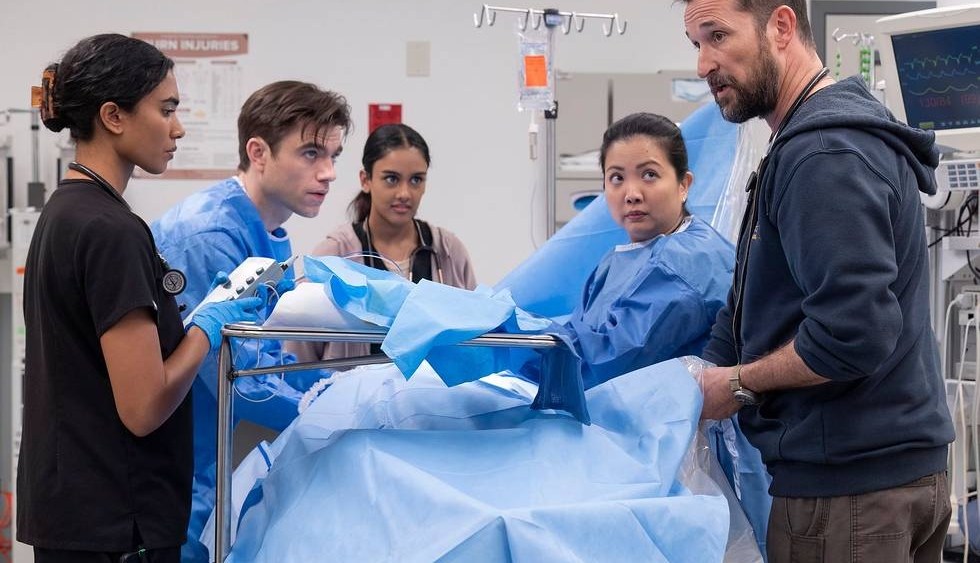After just one season, the Emmy Award-winning drama “The Pit” is already impacting medical conversations. That’s according to a new study released Monday by the USC Norman Lear Center that says “The Pit” has changed the conversation about issues like organ donation and end-of-life planning.
According to a survey of 1,409 viewer groups conducted by the Hollywood Health and Society Division at the Norman Lear Center at the University of Southern California, 26.9% of respondents said they were more likely to seek out information about organ donation after watching “The Pit,” and 17.2% said they would share that information with others. The study helpfully points out that the impact was particularly strong on black audiences. This is an important distinction because black patients are overrepresented on transplant waiting lists and are often underrepresented in donor numbers.
The storyline of “The Pit,” in which a family discusses the end-of-life decisions of an ill father, also seems to have had a big impact on viewers. About 38.8% said they would take a closer look at end-of-life plans, such as living wills and powers of attorney, and 15.3% said they would share this information with others.
And the survey found that of the 709 viewers who watched at least three episodes of “The Pit,” nearly 90% said, “The series helps illuminate how systemic issues like understaffing affect patient outcomes and makes the stress of health care providers relatable.”
The Hollywood Health and Society team at the University of Southern California’s Norman Lear Center also spoke with doctors, nurses, and trainees, and most confirmed the authenticity of the show’s stories, including overcrowding, lack of funding, and other realities of the job.
“While our primary goal is to create compelling and complex stories, we are also committed to keeping our depiction of medical topics current and accurate,” said Joe Sachs, MD, executive producer and screenwriter for “The Pit.” “This makes public health education a great side effect of our dramatic storytelling.”
The study coincides with Monday’s USC Normal Lear Center’s Hollywood, Health and Society honors, which include the Health Culture Award for “The Pit.” Recent Emmy winner Katherine LaNasa will present the award to executive producer and star (and Emmy winner) Noah Wyle, creator and showrunner R. Scott Gemmill, and the show’s writing team.
“For 25 years, our work has been built on the idea that stories matter, but the conventional wisdom is that you need to hide the ‘broccoli’ inside the ‘hamburger’ for the audience to stomach it,” said Erica Rosenthal, director of research at the Norman Lear Center at the University of Southern California. “The success of ‘The Pit’ is a powerful reminder that stories can prioritize accuracy, highlight systemic challenges through authentic characters, stir emotion and inspire real-world action without sacrificing entertainment value.”
Other series to be honored include “Shrinking,” “Dying for Sex,” “Paradise,” “Matlock,” “Grey’s Anatomy” and “Chicago Med,” all of which have been recognized for making a difference on topics such as health care, racism, climate change and cancer. Comedian Carol Leifer will host the event, which will be held at the Writers Guild Theater in Beverly Hills.
In addition to LaNasa, other presenters include Jason Ritter (Matlock), Wendi Malick (Shrinking), Sarah Shahi (Paradise), Nicki Boyer (Dying for Sex) and Jason George (Grey’s Anatomy). Those in attendance included Lear’s wife, Lynne Lear, as well as the team from Lear’s last show (“Boots”), including actor Miles Heiser and author Greg Cope White.
The 2025 hosting committee for the awards is Jimmy Kimmel, Judith Light, Lynn Lear, Phil Rosenthal, and Yvette Nicole Brown.

